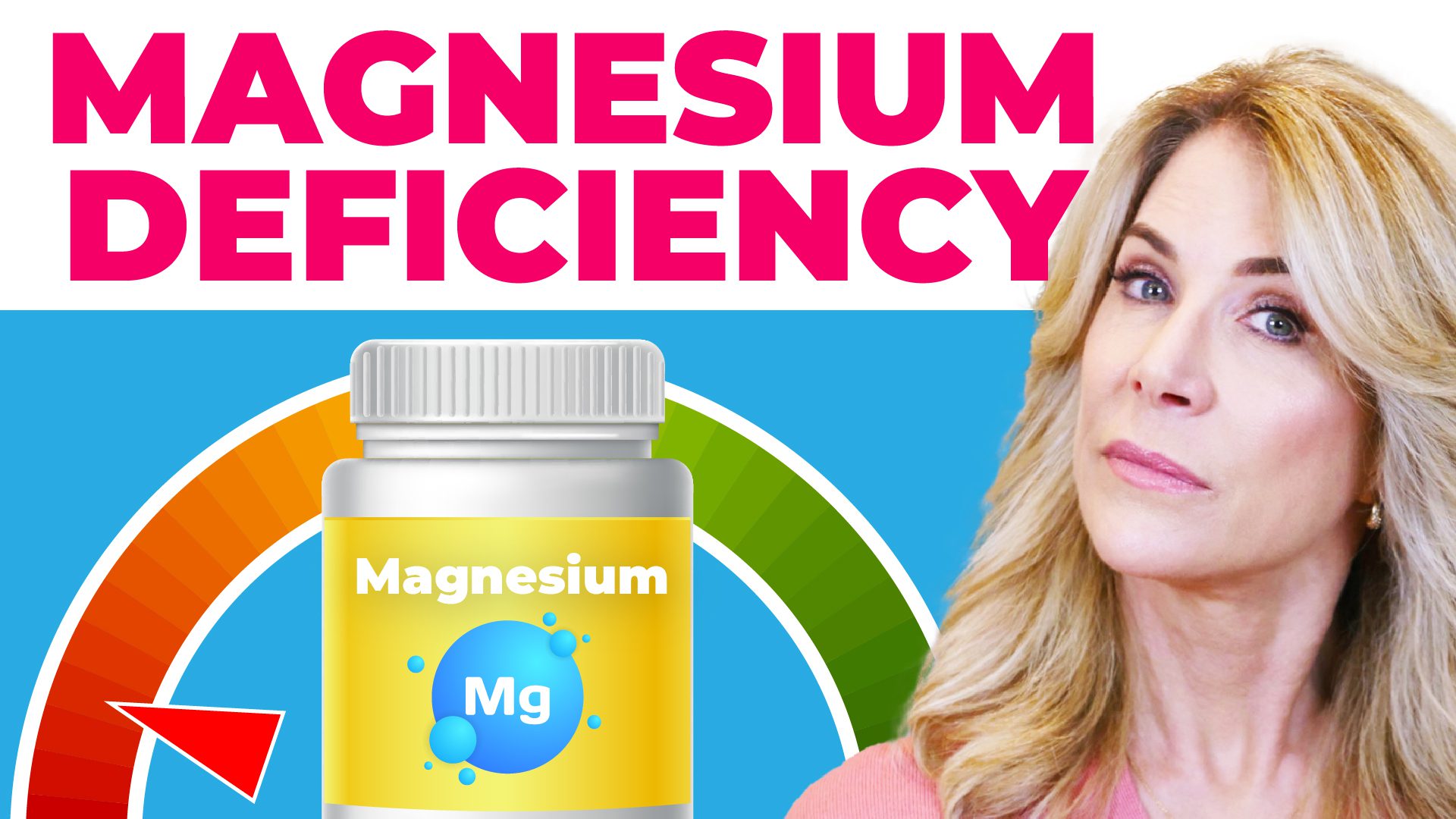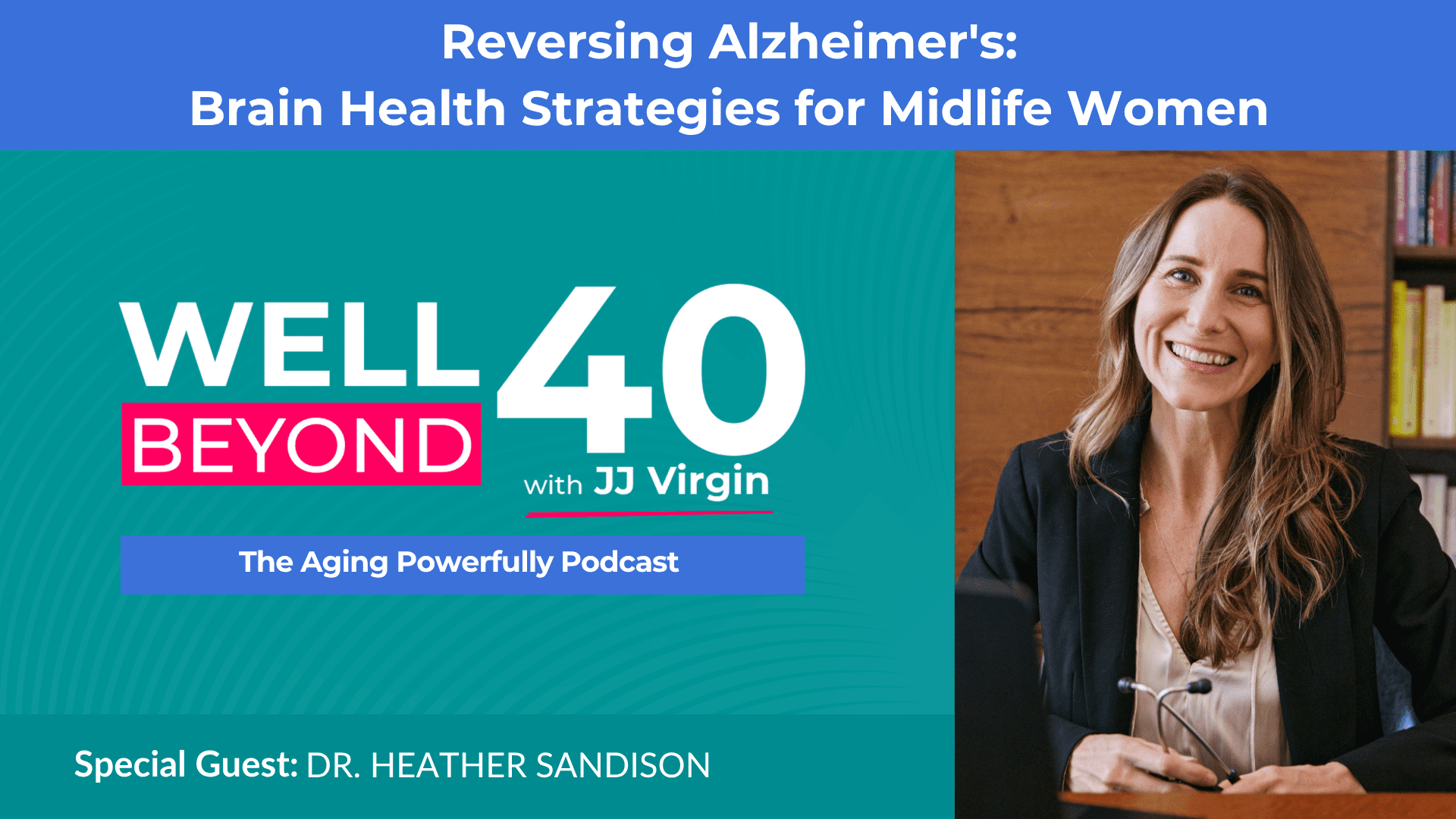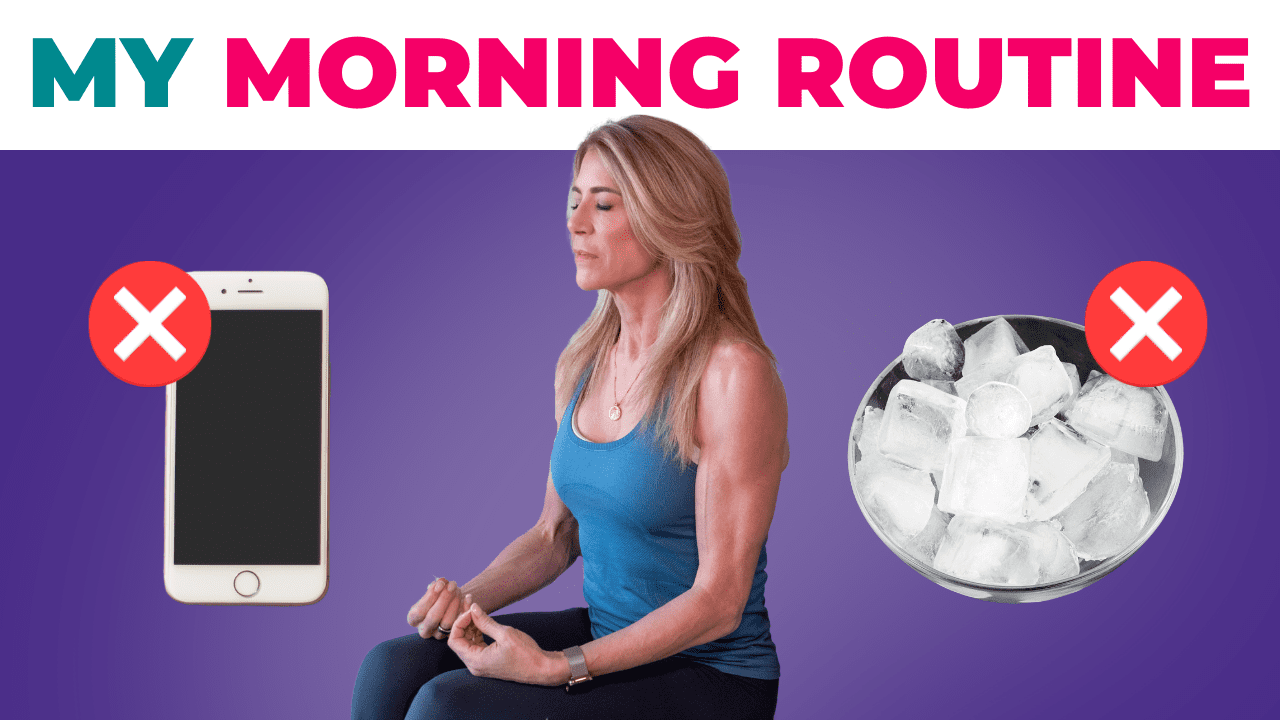From Muscle Cramps to Brain Fog: The Warning Signs You Can’t Afford to Ignore
If you’ve ever experienced unexpected discomfort during the night, you might already suspect that something’s off. But did you know that your body could be crying out for more magnesium? This mineral is a powerhouse for so many vital functions in our bodies, yet nearly half of us aren’t getting enough of it. Magnesium is crucial for everything from energy production to overall health, and when your levels are low, it can lead to a cascade of issues—many of which we tend to overlook or blame on aging.
Take muscle cramps, for example. Those painful, unexpected spasms are one of the most common signs of magnesium deficiency. And it doesn’t stop there. Low magnesium levels can also manifest as various symptoms affecting your daily life, from your mood to energy levels, and even more serious health concerns. In fact, studies have shown that boosting your magnesium intake can significantly impact your overall well-being, improving several aspects of health that you might not expect.
So, what can you do? Start by reassessing your magnesium intake. Many food sources are rich in this mineral, and I’ll share some of my favorites. But let’s be real—most of us need to supplement to get those levels up. I take magnesium every night before bed and keep a topical magnesium product on hand for occasional use. It’s all about finding what works for you and staying consistent.
Don’t ignore those little signals your body sends you. If anything I’ve mentioned sounds familiar, tune in to learn more. It might be time to rethink your magnesium levels and learn more about this essential mineral’s impact on your health.
Timestamps
00:01:02- The Importance of Magnesium
00:01:33- Signs of Magnesium Deficiency
00:02:36- Magnesium and Mental Health
00:03:28- Magnesium for Energy and Muscle Health
00:04:28- Magnesium’s Role in Blood Pressure and Heart Health
00:05:41- Magnesium and Bone Health
00:06:42- Uncommon Signs of Magnesium Deficiency
00:09:54- How to Test and Increase Your Magnesium Levels
Resources Mentioned in this episode
Vital Choice wild-caught seafood
Reignite Wellness™ Magnesium Body Calm
Reignite Wellness™ ElectroReplenish
Download my free Resistance Training Cheat Sheet
Download my FREE Best Rest Sleep Cheat Sheet
Study: Effects of Magnesium Supplementation on Muscle Soreness and Performance
Study: Treating arrhythmias with adjunctive magnesium: identifying future research directions
Study: Magnesium, inflammation, and obesity in chronic disease
Study: The Role of Magnesium in Sleep Health: a Systematic Review of Available Literature
Episode Sponsors:
Try Timeline. Use code JJ10 for 10% off all products
Try Qualia risk-free for up to 100 days and code VIRGINWELLNESS for an additional 15% off
Magnesium has hundreds of jobs in the body that keep you healthy and nearly half of us aren’t getting enough, which is crazy because there’s so much responsibility for your health that magnesium has that a deficiency can take a huge toll on everything from muscle protein synthesis and energy production to your bone health, your muscle function, regulating your neurotransmitter, even your blood sugar control.
So we’re going to talk through the common signs of deficiencies and I’ll share some of the different places that you can get your magnesium from. Now, the first one. Our muscle twitches and cramps. I don’t know if you’ve ever had one of these wake you up in the middle of the night. I sure haven’t. I’m going to share my hack with what I do for that.
Magnesium is essential for muscle relaxation. So if you’re experiencing those muscle twitches or cramps, it is a big red flag that your magnesium levels might be low. There was a 2021 randomized, double blind, placebo controlled, multi center study published in Nutrition Journal that found that magnesium can be an effective, well tolerated treatment for reducing the frequency and duration of nocturnal leg cramps and improving sleep quality.
Now, I’ll tell you, I take magnesium every night before bed, and I also do electrolytes throughout the day. But every once in a while, especially if I’ve been wearing stilettos, I get those crazy cramps in my calves that wake me up. So what I use when that happens is I keep by my bed, this amazing magnesium cream.
It’s my magnesium cream pack, takes it away in a couple of minutes. The next one are mood swings and mental disorders. So if you’re feeling a little off your game, it turns out magnesium plays a huge role in managing mental health, particularly things like ADD and ADHD and a deficiency might manifest itself as like more anxiety or trouble.
focusing. Magnesium, it turns out, has a really nice calming effect on the nervous system. So if you’re feeling Irritated? You’ve got some mood swings? Try boosting your magnesium. See what it does for helping to stabilize your mood. There was a 2021 randomized control trial that was published in the journal Stress and Health, and it found that magnesium supplementation, particularly when it was combined with B6, can significantly improve mental health health outcomes, including reductions in depression and anxiety symptoms in stressed individuals with low magnesium levels.
Next one is persistent fatigue and muscle weakness. Now, if you’re always feeling tired and your muscles feel weak, it could be a sign that your magnesium levels are less than ideal. Magnesium is crucial for energy production, so without enough, you might feel like you’re always running on empty. There was a 2022 randomized control trial that was published in the Journal of Strength and Conditioning Research that looked at the effects of magnesium supplementation on muscle soreness.
and performance in college aged males and females, and they found that magnesium significantly reduced muscle soreness and improved perceived recovery after eccentric exercise sessions that induced muscle fatigue and soreness. Now, by the way, eccentric exercise is what is known to make you sore. I will tell you that a couple nights a week, I do an Epsom salts bath.
I, of course, Take a lot of magnesium as well, but that’s one of the things I like too. If I’ve done an especially hard workout, Epsom salts bath for the win. The next one is high blood pressure because magnesium helps to keep your blood pressure in check. So if you’ve got high blood pressure, it could be a symptom of magnesium deficiency.
There was a 2016 meta analysis that was published in Hypertension that found that magnesium supplementation significantly reduced systolic blood pressure By 2.00 MMS per HG and diastolic blood pressure by point by 1.78 mm per hg. And the study concluded that magnesium supplementation has a modest but significant effect on lowering blood pressure in adults.
The next one is irregular heartbeat. With its critical role in maintaining a steady heartbeat, low magnesium levels can lead to arrhythmias or irregular heartbeats, which could lead to feeling that feeling of palpitations or an unusually fast or slow heart rate. There was a 2017 journal article published in European Heart Journal, Cardiovascular Pharmacope, therapy that found that up to 38 percent of people with ventricular arrhythmias have a magnesium deficiency and 72 percent have excessive magnesium losses.
Next one up is osteoporosis. You know, we always think calcium when we think bone health, but magnesium is vital for bone health and a deficiency can lead to weaker bones, increasing your risk of osteopenia and osteoporosis. And remember, when your estrogen drops. Your bones are at risk. Magnesium is essential for maintaining bone health and helping to regulate calcium and vitamin D levels in the body, which of course is going to help you maintain bone density during menopause.
There was a 2014 clinical trial that Published in the American Journal of Clinical Nutrition that found that lower dietary magnesium intake is associated with lower bone mineral density and an increased risk of fractures. For instance, in postmenopausal women with higher magnesium intakes, they had better hip and whole body bone mineral density.
Although this did not make Consistently translate into a reduced risk of fractures, which is why we also got to do resistance training and power training and agility training. Okay, got to get off my band, my soapbox on that. Another one is increased sensitivity to noise. This is an unusual one, but it’s a telling sign of a magnesium deficiency, this hypersensitivity to noise.
And it could be due to magnesium’s role in nervous system regulation. There was a 2003 review in the Journal of American Academy of Audiology that. Found that low magnesium levels can make your ears more sensitive to noise and more likely to get damaged. Magnesium helps control how calcium enters your ears.
Without enough magnesium, too much calcium gets in, causing the release of too much glutamate Glutamate is a very excitatory neurotransmitter that overstimulates the nerves in your ears, which can then lead to nerve damage and increased sensitivity of sound. Along with that, oh boy, increased sensitivity or increased severity of hot flashes.
If you are finding that you’re getting more frequent hot flashes or that they’re getting worse, this could also be a sign of magnesium deficiency because magnesium helps regulate. body temperature and not having enough can make hot flashes worse. There was a 2010 review in Nutrition Reviews that found that about 60 percent of adults in the United States do not consume the estimated average requirement for magnesium and low magnesium status is associated with chronic inflammatory stress, which can exacerbate hot flashes.
Other health conditions including hot flashes. Next up is sleep disruption. So if hot flashes aren’t disrupting your sleep enough, magnesium can also cause sleep disruptions. And this, again, this struggling with sleep, this insomnia, is a sign that you have low magnesium because Magnesium plays a big role in supporting deep restorative sleep because it helps maintain healthy levels of gaba.
GABA is that calming neurotransmitter that promotes sleep. The observational studies in the 2023. 2023 systematic review published in biological trace element research revealed an association between magnesium status and sleep quality, and looked at things like daytime falling asleep, sleepiness snoring, and sleep di duration.
So, if you are having any kind of struggles with your sleep, look to magnesium. And then memory issues and brain fog. Sounds like all the menopause systems, uh, symptoms, doesn’t it? Magnesium supports cognitive functions, and if you’re noticing like memory lapses or periods of brain fog, increasing your magnesium intake might help clear up your thinking and improve that cognitive function as well.
There was a 2019 non randomized controlled trial published in Brain Research Bulletin that found that a lack of magnesium impairs memory in And although their brain cell structures remained unchanged, ensuring optimal magnesium intake supports these brain functions and can improve memory without altering any brain cell structures.
So, therefore, maintaining sufficient magnesium levels in your diet is essential for keeping your memory sharp. So, You might have listened to this going, oops, that’s me, that’s me, that’s me. So how do you really know? Well, first of all, there is a test. It’s called an RBC, red blood cell magnesium test, and it’s going to measure the magnesium content in red blood cells, which is going to give you a better indication of long term magnesium status as compared to if you just do a serum magnesium.
But again, my favorite thing to do is Take magnesium. And one of the things you can tell is, when you’re taking magnesium, is if you take too much, you’ll get loose stools. So, back it off. So, I just keep taking it until stools get a little loose, then back down a little bit, and that’s the dose. There’s also some ways you can get it through food, but what I recommend is, is improving your food intake of it, and then also supplementing with it.
So, deep green leafy vegetables like spinach and kale and Swiss chard are rich in magnesium. Nuts and seeds, almonds and cashews and pumpkin seeds and sunflower seeds. They’re all rich sources. Whole grains. I’m not a big whole grain person, but things like oats. I want to do the gluten freeze and buckwheat and quinoa.
Legumes, different pulses. So lentils and chickpeas, black beans, and then fatty fish, salmon for the win, halibut, sea bass, fruits like avocados and bananas. Dried fruits are a great source, but dried fruits to me are candy, and then you’re going to love this one, dark chocolate. And remember, do not make a good thing bad.
Look for dark chocolate that is sweetened with allulose or monk fruit or stevia. And again, I take a chelated magnesium. I take my magnesium body calm. I do epsom salts baths, and I also do my electrolytes. So I’m getting a lot of magnesium in. Now, magnesium isn’t the only nutrient you might be missing out in your diet.
You don’t want the same supplement routine you had in your 20s and 30s. It’s time to upgrade things and optimize your protocol to where you are now. So watch this next video where I share the supplements you should be taking daily for better muscle building and fat burning and energy when you’re 40 plus.
Hide Transcript

 Subscribe to our show
Subscribe to our show 




